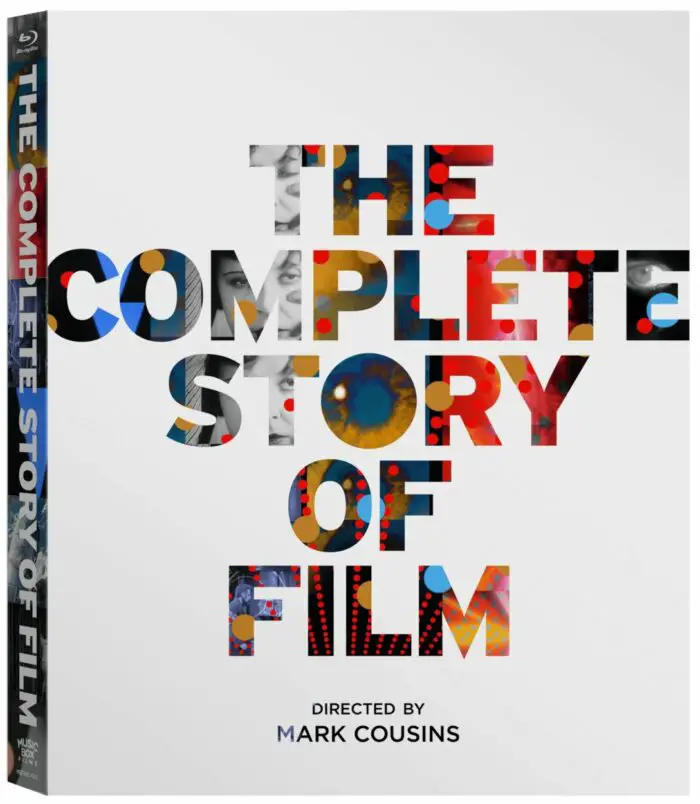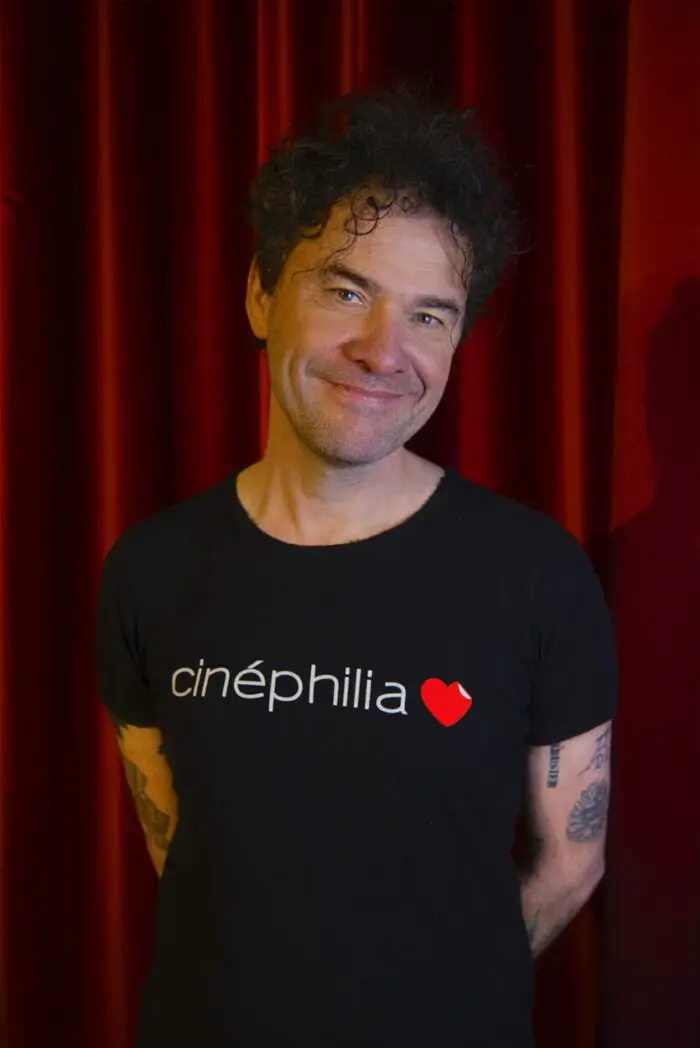Completed in 2011, Mark Cousins’ documentary The Story of Film: An Odyssey was—and still is—a remarkable accomplishment. Using footage from across cinema’s long history from its first days to the start of the 20th century, Cousins told The Story of Film in 15 hour-long chapters, exploring innovations, movements, techniques, and auteurs from across the world, doing so with a light step, a sly humor, and a deep understanding of cinematic form and meaning. In 2021, he updated his documentary with the equally enthralling sequel The Story of Film: A New Generation, following where where Odyssey left off, exploring how movies and moviegoing have evolved in the new millennium to face new challenges and develop new ideas. Now, Music Box Films presents both films together in a single four-disc Blu-ray set, The Complete Story of Film, one designed to entice and please any cineaste.

At more than 18 hours of cinematic content, Cousins’ project is epic in scope. His narration, smart and skillful, guides viewers through the widely varying content without ever overwhelming it. Like any good cinephile, he knows film is a visual medium, and so more than anything else these two films depend upon films themselves—from Edison and the Lumières through Welles and Renoir to Godard, Scorsese, Campion, and Coogler, The May-Irwin Kiss to Black Panther—nearly all of them, except for the very earliest films, in pristine condition, with extended sequences and clever connections a frequent source of analysis. While the presentation is essentially chronological, Cousins doesn’t hesitate to tie together scenes from Carol Reed, Godard, and Scorsese, their protagonists in successive decades each mulling over the bubbles in a drink as a sign of psychological torment. Cousins understands as well as anyone the shape of influence in what is by its very nature an imitative medium.
To a lesser extent, Cousins relies on interviews with filmmakers, historians, and actors, while traveling himself to the sites of famous films: Edison’s Black Maria in New Jersey, the train station at La Ciotat, the steps of Odessa, the streets of Rome, Open City, the famous Hollywood sign. But it’s his subtle, confident, understated narration analyzing the diverse clips that make his documentary worth a close watch or three for any film buff or scholar. Cousins argues that extant histories of cinema are by their nature racist and sexist, leaving out the significant contributions of world cinemas and women across the globe, and that his own project is indeed an “odyssey,” charting into unknown waters. The latter film in particular makes a more overt and demonstrable effort to address the matter; his version of cinema’s early decades differs little from any conventional academic treatise of its origins—there’s no mention of Oscar Micheaux, for instance, or of any of the “race films” of the 1940s and ’50s—though the presentation is nonetheless clear and engaging.

The Story of Film: An Odyssey circles the globe to focus on the films and auteurs that marked cinema’s first century. There’s Méliès, then Griffith, of course, with copious content from Way Down East and Intolerance (and less from Birth of a Nation), on to Sjöström and Eisenstein (no Vertov?), Renoir and Vigo, Welles and Wilder, Bergman and Ozu, film noir and the Nouvelle Vague, and on through the breakup of the Hollywood studio system and on right up to Mulholland Dr and Oldboy. It’s an excellent primer for any novice student of the art form, but one which would deserve a second watch after seeing the films presented in full. (And for me, following three decades of teaching film at university, like my world cinema, genres, and auteurs syllabi spring back to life.)
In The Story of Film: A New Generation, Cousins turns his attention to world cinema from 2010 to 2021. Here, the range of works is even more diverse: Frozen, The Babadook, Cemetery of Splendour, Parasite, Moonlight, The Farewell, Black Panther, Lover’s Rock, Midsommar, Tangerine, and Leave No Trace are just a few, cut back against their 20th-century influences. Here, Cousins focuses more on those films, filmmakers, and communities under-represented in traditional film histories. Asian and Middle Eastern films and filmmakers are given a special emphasis as are the experimental nonfictions of Joshua Oppenheimer and films that look to represent gender in its evolving fluidity and diversity. With the recent pandemic receding, Cousins tackles the questions of cinema’s future as well, asking what comes next in the age of streaming. Themes will recur, motifs emerge, technologies certain to change, but how will moviemaking and moviegoing change? Will it still, as it ever has, transport and transform us with a similar sense of joy, wonder, or anxiety?

I’m hoping that A New Generation turns out to be a middle chapter in Cousins’ long project, that a third installment is ready for us cinephiles a decade or so from now, showing us where we’ve been and framing the questions for a next generation. (Though Cousins reports he completed A New Generation without funding, so I won’t wish him to go unremunerated for his efforts.) For now, Music Box Films’ elegant four-disc set traces a full history of cinema, from its inception to the current day, directed by one of the art form’s pre-eminent guides.
The box set offers no special features—it is, in its own way, an extended special feature to end all special features itself—other than its packaging, which tucks each disc in a digipak sleeve with an incredibly detailed 48-page collector’s booklet and viewer’s guide, featuring stories from the shoot and a full index of the films and filmmakers featured in both documentaries. It’s a valuable companion and a fascinating artifact in its own right, a print canon of sorts collecting the title and director of every film deemed worthy of citing in Cousins’ project. To read it, and the stories behind the making of The Complete Story of Film, is to be reminded of the epic scope and satisfying completion of this remarkable set of documentaries.
The Complete Story of Film is available from Music Box Films and retailers August 29, 2023, retailing for $119.95.




